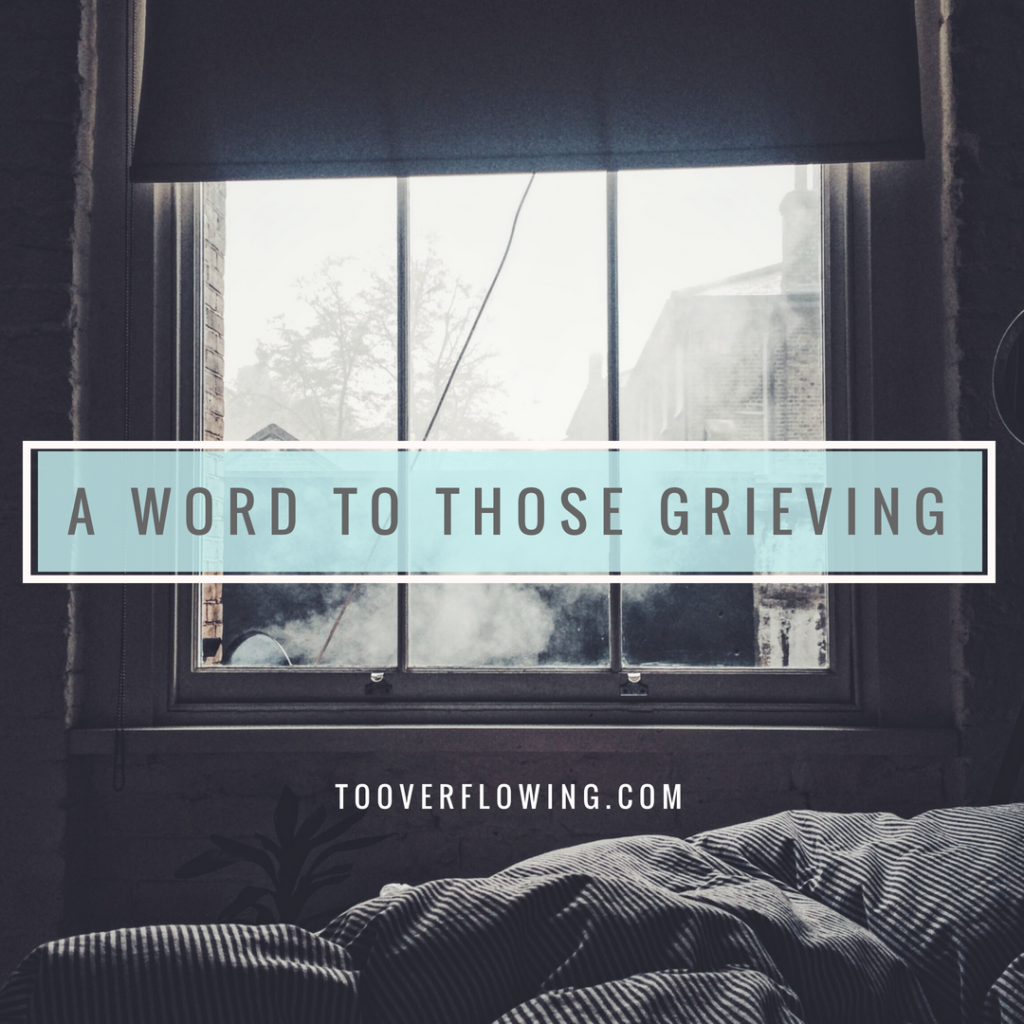I have to admit that I sometimes feel pressure to “produce content” for my blog. It’s not pressure from you. It’s a pressure from the online “rules-of-engagement” or maybe it’s a pressure from comparison or a combination of all the things.
But I write best — most authentically — in the overflow. I write best when something burns in my soul so fiercely that I know I have to write it down.
This is one of those things.
Waiting for God to Speak
I’ve been in new territory lately, trying to find my footing on this new ground. In this recent journey, I’ve been waiting for God to speak like I know He does — like He has so many times before. Waiting when my tendency is to push ahead to a solution. Waiting while fearfully wondering if maybe this time His voice would be too faint for me to hear. Waiting with a bit of soul-numbness.
And then today, He broke into my waiting and spoke.

Needing more than Sovereignty
Years ago, in going through some painful things, I found deep comfort in the sovereignty of God. To know that He’s in complete control, even over the birds of the air like Jesus said in Matthew 10, brought strength and perseverance. Truly, the sovereignty of God became my mantra. It became such a revelation for me…that I literally got it tattooed on my body. Sorry, mom. The truth of God’s sovereignty has been foundational to my pressing on over the years.
But in this recent season, I’ve found it difficult to forge ahead solely with the banner of God’s sovereignty. Don’t get me wrong. I believe He’s sovereign. I believe that’s completely true. He’s in control. And nothing in my life (or yours) could have ever happened apart from His sovereign rule. But that aspect of God’s character, though profoundly foundational to my faith, hasn’t been able to heal my wounds. It’s been a bit cerebral. And I’ve needed more than cerebral.
This morning I was reading a book that I’ve slowly been walking through called Luminous Dark by Alain Emerson. It’s a book about Alain’s painful grieving process after losing his young wife to brain cancer. I know. A light read. But throughout the pages, he challenges us as believers not to simply, “be ok because God is good” but to grieve with God through our suffering. He uses the phrase, “lean into the pain” to describe the process of true healing. We invite God into the dark, wrestling and waiting, until light breaks through.
Today, I was in chapter five entitled “Pathos.”
The God Who Suffers With Us
Alain says, “My experience of walking through acute pain revealed to me the gap there is in much of the church around the world today: we rush to the God who is in control, and give no time to the God who suffers with us, the One who meets us in our disappointment and joins with us in our mourning.”
Read that sentence again.
No really. Read it again. Maybe even out-loud.
We rush with our words in efforts to comfort others, “Oh, I know this hurts but thankfully God is in control.” Yes. He is. Thankfully. But this life still hurts. Real hurt. Real pain. Real tears. And one glorious aspect of our God is that He is a Father who suffers with us.
Alain continues, “Knowing that God is in control may bring a measure of theoretical security, but it doesn’t heal our broken hearts.” He goes on to tell a story of his earthly father. He moved home with his parents after his first wife’s death. He says that at night he would groan with tearful grief in his bed. Groan in pain. And every night his dad would come and sit on the edge of his bed, weeping with him.
One night, only one, his dad broke the sounds of groaning and weeping with words, “Alain, if I could take this for you, son, I would take it all now, if the Lord would let me, I would take it for you.”
That’s our Father.
Our Father doesn’t need us to act like the pain of this world doesn’t truly hurt — us forging ahead without feeling or real healing under the banner of His sovereignty. He wants to sit on the edge of our bed weeping with us, as a Father hurting with their child in pain. He willingly lingers with us. He waits with us. He suffers with us. He gives us space to be in process. And in time — His perfect time — He kindly begins to shine His healing light into those dark places.
Too often we don’t give ourselves time to actually heal. Maybe it’s the American culture. Maybe it’s denial. Maybe it’s survival. I’m not sure. But this I know. God hurts when His children hurt. Sufferings of this world are not things that God looks upon from a distance with an unfeeling, “You can move on. I’m in control. I’ll work all of this for good.” Yes, He’s in control. Yes, He’s being faithful. Yes, He will work it all together for good.
But that’s not all.
He’s kind.
He’s tender.
And He’s near — sitting on the edge of our bed while we grieve, faithful to heal in the process.

